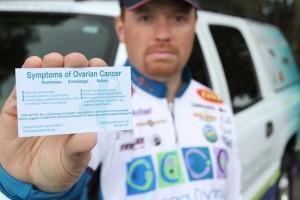
Q&A with Offshore Boating Electronics Guru, Chris Baxter
We're back again with another exclusive look from inside the fishing and boating industry! This time, we talked with offshore boating electronics guru, Chris Baxter. From his vantage point with Zoom Bait, he shared with us about his start in fishing, his efforts to go pro, the snag that life thew at his family, and how he's worked to use adversity as inspiration to help save lives.
Beginning a Fishing Journey that Became So Much More
T-H Marine: Thanks again for taking time to sit down with us, Chris. We like to get a good sense of how it all began, so what can you tell us about how long you've been been fishing?
Chris Baxter: From what I can remember, I was probably 4-5 years old when I started. I can still recall my dad teaching me to throw a bait caster with a practice plug in the front yard around 7, too, and I can still name the first bait caster rod and reel I got new: a Browning Boron 5’6” pistol grip with a Daiwa SM2A. That was high class back in the day.
THM: For many of us, it was a father, a grandfather, or an uncle who took us out on the water. It sounds like your father played a big role in that for you, too? Who do you remember getting you hooked with fishing?
CB: I went with my father and his fishing buddy Jim Payne. I went with them practically all the time.
THM: What about fishing appealed to you most?
CB: To this day, I just love everything about fishing and, second, it is just being able to spend time with friends while traveling. I would say socializing and cutting up with everyone outweighs the catching part of fishing.
"Mostly an Offshore Boating Electronics Guru"
THM: When someone visits chrisbaxterfishing.com, they may come away with the impression that you're a pro, but we've found that you'll be the first to admit "not yet". What can you tell us about that?
CB: I am actually not a pro, however, I travel just about as much as a tour level pro -- 11,000 miles a year! I just fish everything I can (within reason).
THM: Where do you like fishing the most?
CB: I am mostly known as an offshore boating electronics guru; I am not much for fishing in the dirt as some of my travel partners. However, I am trying to get next to the bank more often. I just feel like anyone can catch them up shallow on any given day and I have more confidence to fish out deep.
As far as a favorite goes, I like any clear water lake with spotted bass. Around home (Winder, GA), I go to Hartwell, Lanier, or Keowee -- we call it TV fishing [LOL]. After that, I like Kentucky Lake, High Rock, and Kerr since they are almost the same as fishing the clear water lakes.
THM: Launching into big lakes like those, you definitely need to have dependable, high performance equipment. What T-H Marine products do you credit with boosting your boating experience?
CB: There are so many great products I would hate to leave one out, but I can easily point to the Atlas Jack Plate to get the best performance from your outboard in all water types, the G-Force trolling motor handle so you have no fear of a rope breaking during a tournament, the Troll Tamer so you have no fear of your trolling motor flying over in rough water, the Shock Lock to keep all your electronics secure, and last, but definitely not least, is the combo of the Lok-R-Bar and Two Way Boat Alarm System to keep all your valuable items safe while traveling.
If a tournament angler invests in these products alone they will be worth every dollar spent down the road.
How a Passion for Fishing Led to a Mission Opportunity
THM: In the first bit of background we got about you, we saw extensive mention about how your wife's ovarian cancer had ignited a passion to help others be more aware of the symptoms and signs. What can you say about the challenge of facing that, especially as someone who often goes on the road?
CB: I can recall it like yesterday. I was at a tournament and [my wife] called me to say she was not feeling well. As a matter of fact, she had just been to see the doctor shortly before this for her yearly check-up as all women do and her doctor was not listening to her as she went on about her symptoms. A day later she called me to say she was staying home from work and I asked if I needed to come home and she said no.
On tournament morning, she called as I was getting ready for blast-off and informed me that her mom was coming over to stay. After the derby, I arrived home to find her in pain. The next morning we went to an emergency clinic and they directed me to the ER. From there it was a lengthy wait, to finally having the doctor come in and shut the door -- not a good sign. He instructed us to consult our doctor in the morning and that this was a time-sensitive matter. Long story short, my wife had emergency surgery later that week only to find out it was cancer. I remember this well because the following weekend was my next derby and I called to withdraw for the rest of the season.
THM: It sounds like an incredibly harrowing experience. So now you've committed to raising awareness about ovarian cancer, turning something bad into something that can raise hope. What would you want readers to know about it if their first introduction to ovarian cancer is reading this article?
CB: The bottom line is that we need our women to be more proactive and learn the symptoms for this silent killer because their doctors do not check for ovarian cancer during a routine visit to the OB. It is a simple test, a CA125 blood test, this will be one of the main indicators if something is going on. I have free symptom cards that are available for everyone I meet.
THM: How did fishing, doing tournaments and becoming a force in the industry like this, help with making things feel more normal or giving you an outlet to focus on?
CB: It just feels like I was meant for this calling, from the very first day of chemo when the Georgia Ovarian Cancer Alliance gave us their “Bag of Hope”. When seeing that branding for their logo, a light bulb went off in my head. I immediately ran the idea by my wife and then called our advertising people to get them involved. I reached out to them with a proposal, a few months went by, the board voted for it, and the rest is history.
With all the team wraps out there on boats and trucks, what better way to get the most awareness from impressions on a fishing boat at an FLW event. FLW goes above and beyond, too, giving me ample time to speak about this during weigh in and at the pre -tournament meetings.
THM: That's awesome -- FLW is definitely a good partner, so no surprise there. Speaking of partnerships, we also enjoyed Wired2Fish's mention of you and Ed Chambers at Zoom Bait, especially as it gave everyone a good view into the internal dynamics. What can you share with us about what your work with them and other equipment innovators, and what they have coming down the pike?
CB: It has been wonderful working at Zoom! I lost my father at an early age, I was 17, lost and like most of us, I was living life on the edge. I had a lot of downs but luckily I found fishing again after I moved in with my mother in my early 20’s got my life back on track. I then got in a bass club with the Chambers.
A few years went by and I can recall fishing the old Jerry Rhyne Team Trail with all them. That was back in the day when one of my good friends got his start, Gerald Swindle. A lot of great fishermen came out of that circuit. I was working at night after my day job with Ed, as most of us did back then and he just asked me if I would like to work here full time and told me to put my notice in. The rest is history and 20 some odd years have gone by. Ed is like my second father. He is without a doubt one of the smartest people I have ever been around. He can look at anything and build one better. I have learned so much from him words of appreciation cannot begin to fill a blank sheet of paper.
THM: We love that story. It's funny how much things can change when you stick it out and get involved with the right things and right people. So, where do you cast your efforts from here?
CB: Well that’s a good question. I would love the opportunity to fish the tour, it has been hard from the simple aspect that until just recently it usually started in January and that is our busy time here at Zoom and it is hard for me to get away due to show season. I am happy with what I do, fishing at the grass roots level, but I know I have what it takes to fish at the next level. It is a lot easier to fish a multi-day event as opposed to a single day event: you have room to recover from your mistakes, whereas a single day event means you need a little luck to do great.
It would be great to get the GOCA wrap in front of more people to help save another life by spreading awareness and educating women and families.
THM: We agree. You've really made something of that and we hope it's an inspiration to many more to use whatever opportunities they have to save lives, especially if they can do so while fishing. Thanks for sitting down with us, Chris!
CB: Thank you!
Stay tuned for more updates from our bass-fishing Pro Staff and industry partners as we wrap up this season and head toward the next.






